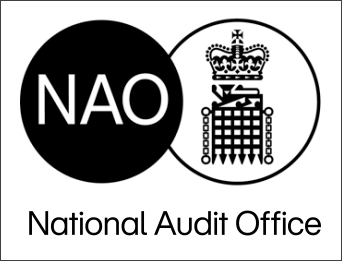Another Chapter in the Epic to Make England Carbon Neutral

By Vince Wall
In June 2019, Government passed legislation committing to achieve ‘net zero’ greenhouse gas emissions by 2050. A recent report by the National Audit Office (dated 4 December 2020) highlights the main risks Government needs to manage to achieve net zero and maximise value for money. It also outlines the Government’s intentions and actions that will seek to achieve net zero carbon, as well as reviewing Government’s approach so far.
The report states that the most expensive sector to decarbonise is the buildings sector (presumably an encompassing term for those who build), followed by the costs of greenhouse gas removals and cutting emissions in industry. It states that linking homes to heat energy networks will be integral to cutting carbon emissions. Electricity generation is also another key part of how Government intends to cut Carbon emissions, with the potential to utilise hydrogen and wind.
The report also outlines strategies intended to be published by Government, including an Energy White Paper, a Heat and Buildings Strategy, and a Transport Decarbonisation Plan, all of which are likely to have implications for the building sector. With these many strategies, the report finds that their publication has been significantly delayed.
The scale of the challenge is a key theme of the report, described as “colossal” and significantly more challenging than Government’s previous target to reduce emissions by 80% by 2050. The report emphasises that personal behaviour will be key to achieving the target, giving the example of consumer’s considering their energy consumption as a positive, but also reflecting that in future individuals will need to purchase different products to those they currently use – e.g buying a zero-emission car, or make more fundamental changes to how they live – e.g reducing meat and dairy consumption, to really make a difference.
The report notes that Local Authorities will be key in tackling Carbon Emissions. However, many English Local Authorities feel there is a lack of clarity from central Government on the role they should play in achieving net zero. The report hopes that specific “Sector Strategies” could be one way of empowering Local Authorities with the task. The report was critical of the Government’s structure stating, “departments with separate accountabilities lead to business planning and spending review submissions being created in silos”.
The report is clear that the costs of achieving net-zero will be very high. However, it does note that the costs of inaction would be far greater than the costs of achieving net zero because of the need to adapt to substantial climate change, such as building flood defences and dealing with the health impacts of higher temperatures.
The report is not overly optimistic, but it is perhaps sobering enough to make central Government think more realistically about its approach. Last month Prime Minister Boris Johnson MP spoke of his “green industrial revolution” that will invest £12bn of Government funds, create 250,000 green jobs and help drive a green recovery from Covid-19. In response to this announcement Green Party MP Caroline Lucas criticised the plan as vague and underpowered, describing it as “a shopping list” that “commits only a fraction of the necessary resources”. Undoubtedly there is a lot of work to be done, both from Government and individuals.





